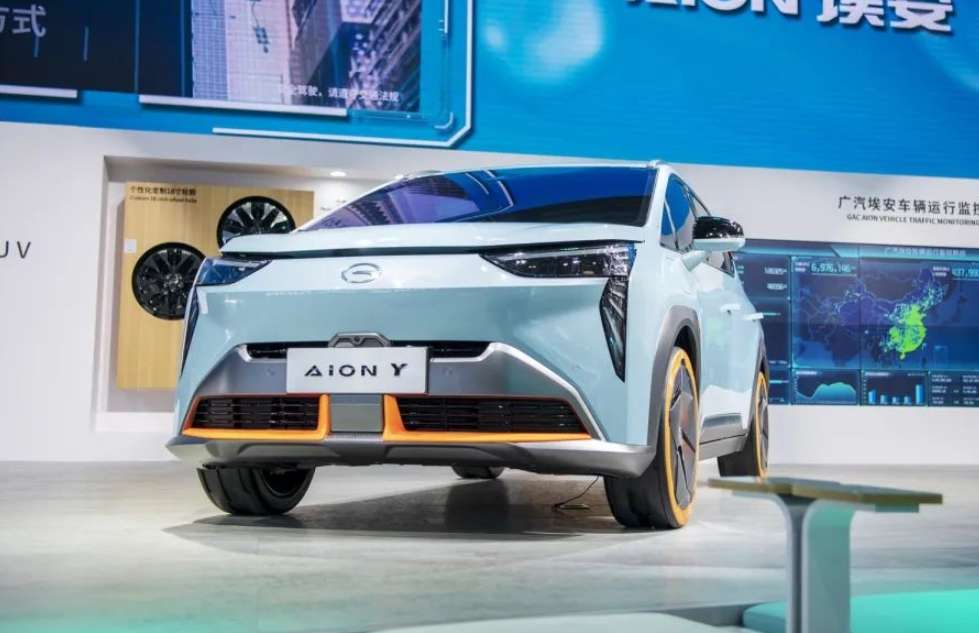GAC Group Navigates Growing Pains
Advertisements
In recent years, the automotive industry has witnessed a seismic shift toward new energy vehicles (NEVs). In 2023 alone, China’s sales of NEVs approached a staggering 10 million units, achieving a penetration rate of 31.6%. This significant growth in the new energy sector has compelled traditional fuel vehicle manufacturers to undergo transformations to adapt, with varying degrees of success.
However, this transition has not been without its challenges. Guangzhou Automobile Group Co., Ltd. (GAC Group), one of China’s leading automotive companies with a strong foothold in both traditional and new energy markets, has found itself grappling with the pains of transformation. Recent reports indicate that in the first quarter of 2023, GAC Group experienced notable declines in sales, revenue, and net profit.
The circumstances surrounding GAC Group's struggles are reminiscent of the wider fluctuations in China’s automotive industry amid a global push toward sustainability. Once celebrated for its dual engines of profit – GAC Toyota and GAC Honda in the joint venture segment, along with its own independently branded GAC Trumpchi – the company must now navigate through shifting consumer preferences and increased competition from domestic electric vehicle manufacturers. This balancing act poses critical questions about GAC Group’s future in the face of a turbulent industry transition.
During the heyday of fuel vehicles, GAC Group was a titan in the capital markets. In October 2017, the company's A-share market value soared past 200 billion yuan, making it a significant player just behind SAIC Motor Corporation. At that time, the harmonious coordination between its joint venture businesses and self-owned brands created a profitable enterprise. However, as new energy vehicles began to dominate discussions and market share, GAC Group embarked on a mission to pivot toward electric mobility.

Unfortunately, 2023 has marked a painful pivot for GAC Group. Reports detail that in the first quarter of this year, the company’s operating revenues fell by 19.12% year on year, amounting to 21.346 billion yuan, while net profit plummeted by 20.65% to 1.22 billion yuan. If we consider net profit after excluding non-recurring gains and losses, the decline escalated to an alarming 52.08%. This deterioration can be traced directly back to a drop in vehicle sales across GAC’s extensive brand portfolio, which fell by 24.11% during the first three months of 2023.
Contributing factors include the ongoing economic recovery in China, where the automotive market as a whole has seen positive growth trends, yet simultaneously faces challenges such as reduced subsidies for new energy vehicles and a burgeoning price war among competitors. GAC Group's overall vehicle sales in 2023 reached 2.505 million, a moderate increase of 2.92%, while revenues climbed by 17.48% to 128.757 billion yuan. Nonetheless, the net profit took a significant hit of 45.08%, and after factoring in all costs, the adjusted net profit drop extended to 52.31%.
Within this tumultuous landscape, GAC Group’s more profitable fuel vehicle joint ventures have experienced a slowdown, particularly for GAC Toyota and GAC Honda, where their traditional fuel vehicle sales dipped. In stark contrast, self-owned brands achieved record-high sales but did not generate enough profit margin to offset the declines incurred in the joint ventures.
More specifically, the figures paint a daunting picture. GAC Toyota sold 950,000 vehicles in 2023 but suffered a 5.47% year-on-year decline in sales. GAC Honda faced an even steeper slump, with its sales falling by 13.66% to 640,500 during the same period. Consequently, GAC Group's investment returns in 2023 plummeted by 39.5% to 8.66 billion yuan.
However, the silver lining for GAC Group appears to rest in its fast-rising self-owned brands. GAC Passenger Vehicles, under GAC Trumpchi, reported overall sales of 406,500 units, a 12.12% increase from the previous year. GAC Aion, the electric vehicle subsidiary, posted even more impressive figures, with sales reaching 480,000 units—an astounding 77.02% increase—in 2023. Collectively, the self-owned brands far outpaced the traditional segments, suggesting that the strategic pivot toward new energy vehicles may still offer potential.
Yet, profitability remains a challenge for GAC's self-owned brands. While GAC Trumpchi is reportedly expanding its profit margins, GAC Aion is still facing hurdles due to fierce competition and the impacts of subsidy reductions within the broader market. The path to profitability appears to be longer and more winding than initially anticipated.
Faced with these formidable hurdles, GAC Group is trying three strategic approaches—expanding its global presence, venturing into high-end vehicle markets, and refining its overall ecosystem to better serve users. Such initiatives are pivotal for emerging unscathed from this transformation phase.
In terms of international expansion, GAC Group has already begun exporting vehicles—GAC Toyota alone exported over 20,000 units last year. At the same time, its self-branded cars have entered several international markets, already securing sales of approximately 55,000 units across 41 countries and regions.
Additionally, GAC Group is set to solidify its high-end positioning through the launch of its Haobo brand, establishing a dual-brand matrix alongside GAC Aion. This new luxury line aims to compete directly within the high-end new energy vehicle sector. The initial reception of models such as the Haobo SSR electric supercar and the Haobo GT sedan, which command hefty price tags, may well attract a different clientele and broaden GAC Group's revenue streams.
Moreover, a holistic ecosystem approach is being emphasized at GAC Group. Through partnerships and investments in charging infrastructure, the group is setting a comprehensive energy ecosystem in motion. A significant aspect of this is the collaboration with NIO, focusing on battery swap stations and charging networks. Such strategic moves aim to improve user experiences and drive further adoption of electric vehicles.
As these strategies unfold, the real test lies ahead for GAC Group. The automotive landscape in China continues to evolve rapidly, driven by consumer preferences leaning heavily toward sustainability and technology. Whether GAC Group can navigate this redefined market and emerge profitable remains to be seen, underscoring the urgency for innovation in a fiercely competitive industry.